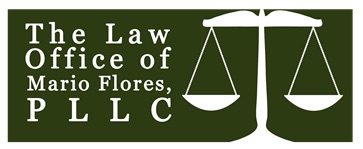Schedule an Appointment Today
Estate Planning & Real Estate Law Attorney in Austin, TX
Having a knowledgeable attorney in your corner to explain your options and guide you in the right direction can be a valuable asset. When you are looking to create an estate plan for your family's financial future or in need of legal counsel in issues involving real estate, I am ready to help. For representation in these matters, as well as immigration, family law, and personal injury, get in touch with me today.
How You Can Benefit from Having a Knowledgeable Attorney on Your Side
Simple, Direct Approach
Legal matters are often complicated and difficult to understand. If you find yourself involved in a serious situation or need to make important decisions about your future & your family, it is in your best interest to work with an attorney who will take the time to explain things in a way that is easier to understand and allows you to choose the path forward that is best for you.
Solution-Oriented Service
Whether you have plans for the future you are hoping to achieve or are in urgent need of legal representation in immigration, family law, personal injury, or criminal & civil litigation matters, the outcome of your case can have a long-lasting impact on your future. Working with an experienced attorney will give you confidence and peace of mind that your best interests are the priority.
Get Help From an Experienced Attorney
Call Now to Schedule a Consultation
Professional Legal Services at The Law Office of Mario Flores, PLLC
Personal Attention
I started my own firm so I would have the opportunity to provide my clients with the direct, one-on-one service they need when they face important legal challenges.
Customized strategies
You and your situation deserve more than just a "cookie-cutter" style of legal service. We will work together to create a strategy that is tailored to suit your unique case.
Clear Communication
With important matters that affect your future, it's only right for you to be included and involved at every step. I will listen to your input and answer your questions.
Here to Provide You & Your Family with the Representation You Need
Life is normally busy and stressful enough without facing a legal situation. When you are making important decisions that impact your future, turning to an attorney with the knowledge and experience to lead you in the right direction is the best choice you can make. At The Law Office of Mario Flores, PLLC, I strive to help my clients pursue real solutions to even the most complicated legal problems and move forward to a brighter tomorrow.
One of the most important things you can do for yourself and your loved ones is to create a detailed estate plan to account for and distribute your assets when you are gone. There is a wide range of tools available to help you put together a plan that meets your needs and helps you achieve your goals. From drafting wills & trusts to setting up powers of attorney or guardianship, I can explain your options and guide you as you choose a plan that is best for you.
Real estate deals require making decisions that greatly affect your finances and your future. Making the right move can set you up with security and stability, while a bad deal could leave you vulnerable to serious problems down the road. Whether you are buying, selling, leasing property, or facing foreclosure, you can give yourself peace of mind as I seek to help you avoid potential obstacles and pitfalls along the way.
In addition to estate planning and real estate services, I provide representation in matters involving family law, criminal & civil litigation, immigration law, and personal injury. You don't have to face your legal challenges alone. If you or your family are in need of legal representation in Georgetown, San Marcos, or Round Rock, contact me at The Law Office of Mario Flores, PLLC in Austin, Texas today and schedule a consultation to talk about your situation.

